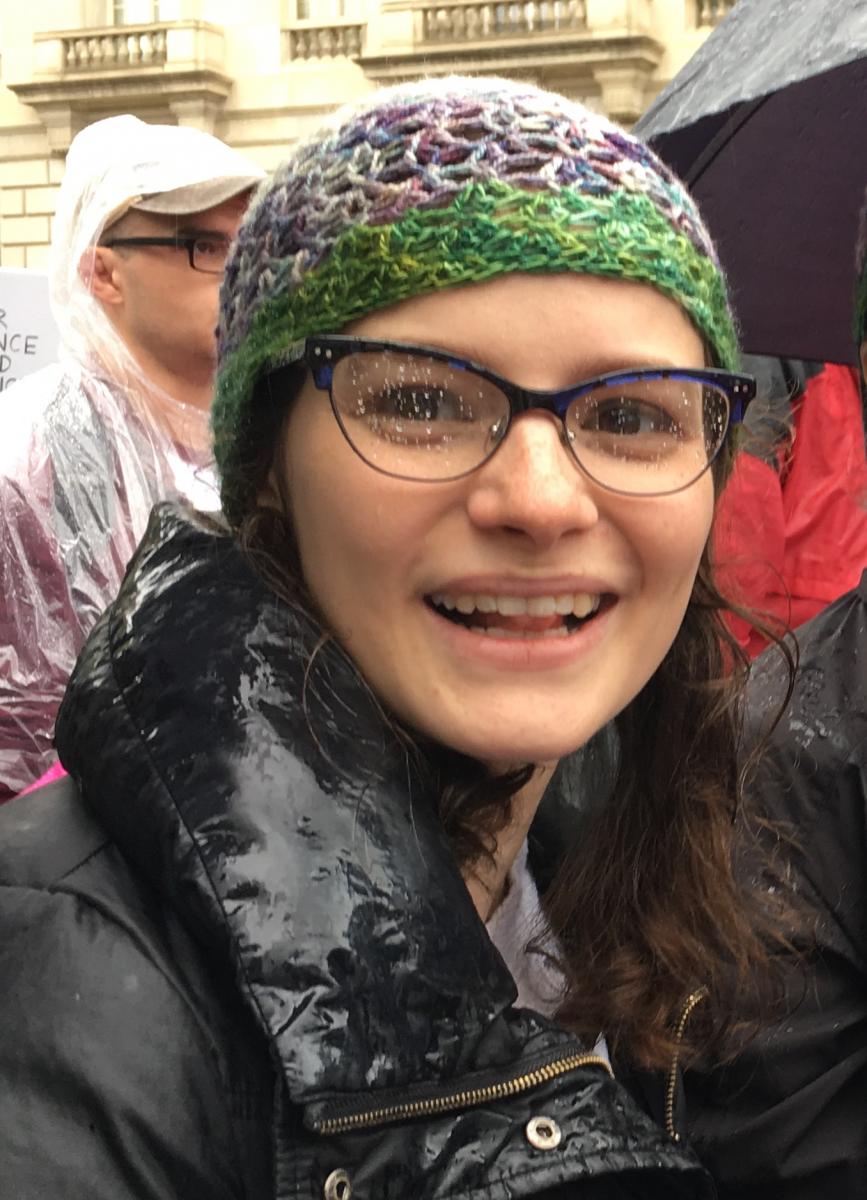What could be better than three Science Booster Clubs reaching 80,000 Iowans in two years? How about twelve new Science Booster Clubs reaching hundreds of thousands of people in eight additional states in 2017? That’s our goal for the year, and we are happy to announce that Claire Adrian-Tucci is going to be helping to make it happen. You’ve gotten to know Claire as the coordinator of NCSE’s teacher programs, NCSEteach and Scientist in the Classroom. But as of May 1, Claire has taken on a new role, or rather two new roles – as the Manager of National Booster Club Operations and Regional Club Organizer. Recently, I interviewed Claire about her new roles; here’s what she had to say about what she sees in her future:
gotten to know Claire as the coordinator of NCSE’s teacher programs, NCSEteach and Scientist in the Classroom. But as of May 1, Claire has taken on a new role, or rather two new roles – as the Manager of National Booster Club Operations and Regional Club Organizer. Recently, I interviewed Claire about her new roles; here’s what she had to say about what she sees in her future:
So, Claire, what will you be doing?
I’m going to be helping Emily support our national expansion. That will entail helping the new clubs with some of the logistical challenges, like finding venues or booking events. I’ll also be assembling and getting activity kits to them, and finding local resources.
You worked with Emily on the first Booster Club in Iowa City. What did you learn in Iowa that will be most helpful with these new clubs?
Most important is having the knowledge that even though it seems like it might be controversial to talk about evolution and climate change in public, it doesn’t mean that it actually is. People really want their kids to be knowledgeable about science and adults are interested too.
From personal experience, I know that using the no-conflict approach is a great way for booster clubs to become successful and gain community support.
How would you describe that?
It’s about focusing on the science and giving people the opportunity to experience at least some of the data for themselves., and just not being willing to engage in argument. Mostly, it’s just refraining from reacting to hostility like a jerk.
Where are these new booster clubs?
There are several new clubs forming in Iowa, thanks to my colleague Brian Pinney, as well as the club I am starting in DC. We also have new clubs in Nebraska, West Virginia, Kentucky, Virginia, Indiana, Oklahoma, and California. ,
You’ve already started a club in DC.
Yes! And I am excited to be able to continue this work. I hope that starting a new club from the ground up will enable me to relate to the experiences of the other new club leaders. I am also excited to learn alongside the volunteer booster club leaders and see if there are any regional differences or challenges. We will all be learning together!
When has no-conflict approach really made a difference?
I think the most memorable was at the Linn County Fair. I didn’t know at the time, but the climate change denier I interacted with was the director of the fair. Because we did not engage in conflict, the booster club was invited back for another year. Emily wrote a blog post about that day here.
When you started your graduate program did you picture doing something like this?
Nope! Being involved in the booster club with Emily made me realize that science outreach is what I want to do. Shout outs to my graduate advisors, Maurine Neiman and Douglas Houston, who were extremely supportive of me leaving the lab (a real crime for a grad student!) to participate in the booster club.
What does success looks like? What do you hope to see by this time next year?
I think the ultimate success would be having 15 flourishing booster clubs with a list of volunteers ready to start their own clubs.

